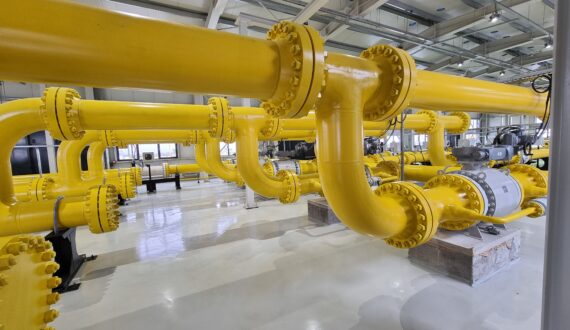Opinion by Corneliu Bodea for thediplomat.ro
Faced with the unprecedented crisis in energy prices, governments seemed the more surprised, the less prepared. But they were quick enough to take measures for stopping the impact of these prices on the entire economic system and in fuelling the inflation. This had already been set in motion by the shortage of products, caused mainly by the pandemic disruption which affected the global production and the logistic systems.
Romania was no exception and politicians competed in optimistic messages to voters, assuring them that in 2022 they will not pay more for energy than in 2021. Another demonstration of demagogy or the lack of a realistic assessment of the impact of this explosion – also fuelled by the conflict in Ukraine and the energy blackmail politics practiced by the Russian Federation: the appearance of three successive emergency ordinances. November 2021, February 2022, and April 2022. They were not likely to calm the spiralling values recorded by the energy exchanges in Romania and, paradoxically, we found ourselves several times in a leading position amongst the EU countries, with the electricity price quota on the day-ahead energy market. In this brief article I don’t want to go into the technicalities, but rather focus on the visible effects and the overview of what this misguided politics is leaving behind as legacy.
The government’s principled action towards limiting the explosive and, partly conjunctural, increase in energy prices from building up in the economic value chains, is beneficial and not to be criticized. The manner of this intervention, on the other hand, is to be analysed and I don’t think there is a simple solution. It is certain that we are no longer used to acting in a structured, disciplined, and rational way, and the present situation is a perfect example. Such sensitive economic intervention requires the establishment of options and principles against which we can validate these options. Such a complex situation can only be tackled by a solid and experienced team, and a necessary consultation with experts and the main players in the market: i.e., energy companies throughout the chain, consumers, and the market regulator. Unfortunately, important stages of this process were bypassed, and the results of the implementation bear these marks.
Being optimistic people and blessed with resources of all kinds, we are encouraged to say: “Now what has been, has been! Let’s look to the future!”. And that is what I propose in the following, starting with some serious errors of the energy compensation scheme and ending with an estimate of the possible damages that will be recorded.
An intervention scheme in the energy market aimed at a price capping for final consumers is likely to distort the economic mechanism of supply and demand and is justifiable at a time of crisis such as the one we are going through. No intervention of this kind can be done without side effects that must be identified, tracked, and treated individually. A basic principle from which to start is an intervention proportional to the level of need.
Accordingly, we do not cap the price for everyone, but only for those who really need it or who would multiply the growth in the economy at a large scale. In other words, capping should be directed towards vulnerable individuals, with incomes below a certain value, or towards companies where the share of energy costs takes a certain proportion from the total costs, such as, for example, manufacturing companies. Another principle would be to achieve a decrease in consumption through this aid, by encouraging investments in energy efficiency made by all consumers and especially by those from the supported categories. Unfortunately, the mechanism of the 3 variants of compensation-capping schemes does not “touch” any of the principles above.
An effect of the capping scheme that works now is that any company in Romania, which is not a big energy consumer, has the price capped at RON 1/kWh, of which the energy component is approximately RON 0,6/kWh, given that today the price of energy on the OPCOM markets fluctuates between RON 1,8 and RON 2,5 /kWh. The difference of RON 1,2 to RON 1,9 x/kWh is borne by the state.
This is perhaps the reason why during this weekend I noticed that a pharmacy in Bucharest, part of a large local group, had the air conditioning at maximum, but the entrance door was open…, I encountered the same phenomenon at a bookstore, then at a restaurant. Walking carefully through Bucharest, you will notice how this capped price, even if 20-30% higher than last year, does not represent any problem for businesses for which the price of energy represents a tiny part of the total expenses (below 2-3%). Perhaps the very feeling that the state bears a part encourages them to make it a partner in a serious expenditure… Of course, it should be primarily a matter of environmental responsibility for each of us, individuals, and businesses, in relation to the targets which we have assumed in the direction of reducing, as a state, the energy consumption, however, I cannot help but notice the error in the adopted regulations.







